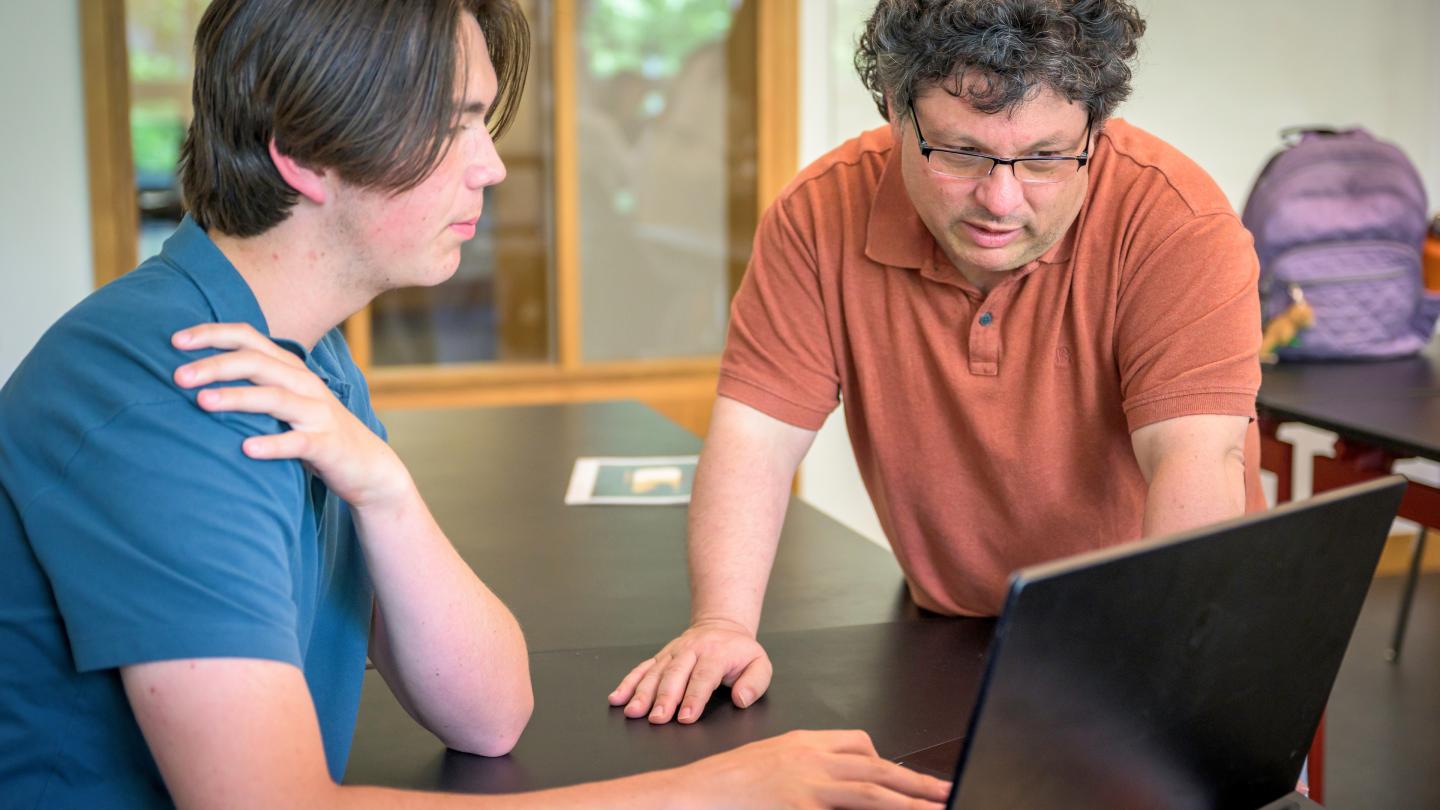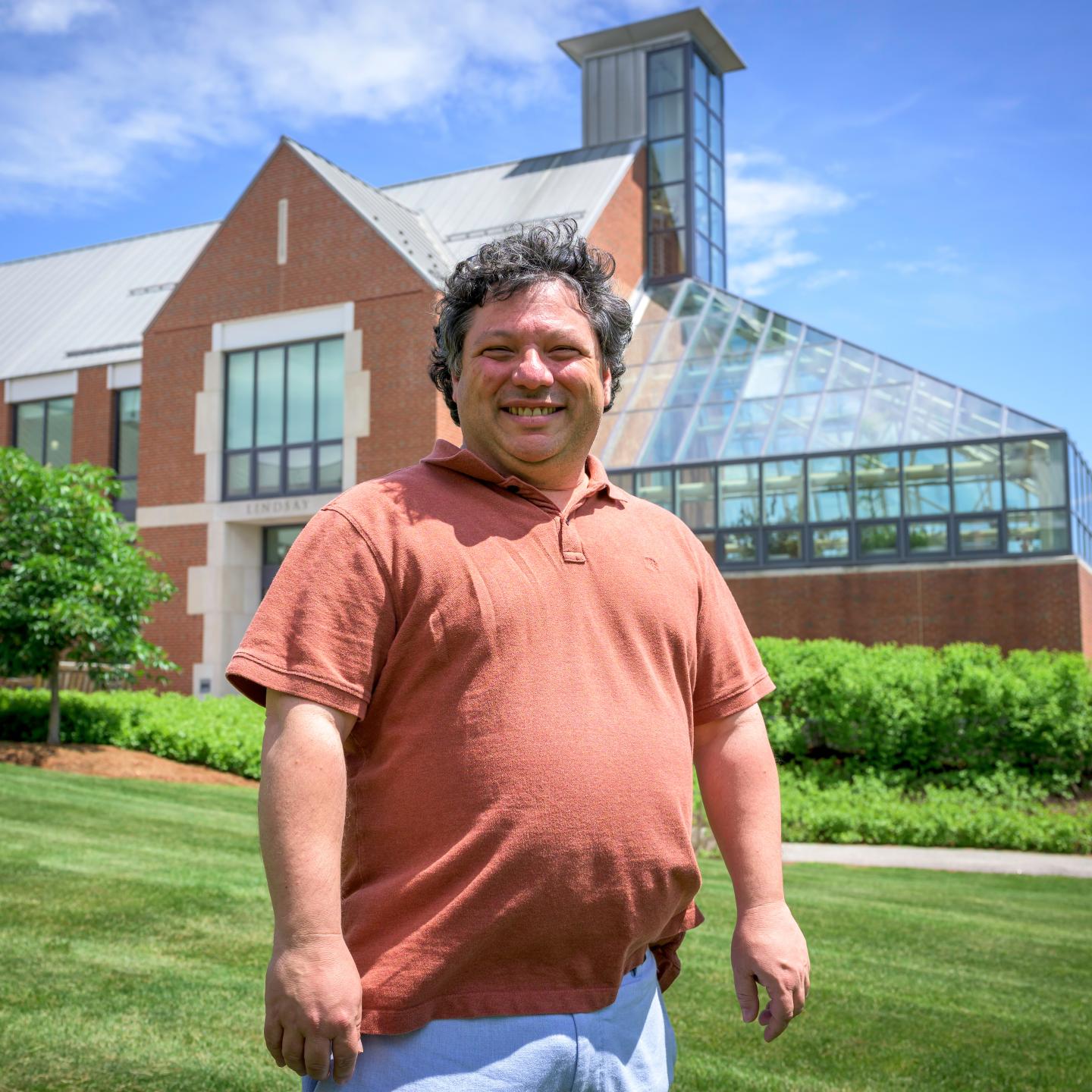

Five questions with Math and Science Teacher Christopher Morse
BY KRISTIN DUISBERG
Christopher Morse earned his undergraduate degree in inorganic chemistry from Dartmouth College and wrote his doctoral thesis at MIT on synthesis and reactivity of rhenium and technetium polyaryl complexes. At St. Paul’s School, Morse is a popular teacher of chemistry and mathematics who can often be found during lunch in the Friedman Community Center, surrounded by students in avid discussion of subjects ranging from precalculus to game theory. He’s also a puzzlemaster who regularly writes trivia questions for the School’s weekly faculty updates and crafted an eclipse-themed puzzle hunt — a series of 11 puzzles that came together to form a twelfth meta-puzzle — for the more than 450 students and faculty who traveled to northern Vermont in April to view the total solar eclipse.

I always knew I wanted to be a teacher. I just love all knowledge.”
So, puzzles. Where did that interest begin?
I had a teacher in fourth grade who used to take the puzzles out of old Games magazines and use them as classroom materials, and then I got a subscription for Games magazine myself. That really started it, though I tended to focus on the more logic- and non-word puzzles back then. It was right around the time I went to grad school that I began to realize I actually liked word puzzles, too, and I started doing more crosswords. I used to go to crossword tournaments, but I was never very good. I mean, the problem was all my friends were the biggest crossword people in the world.
You actually mean that literally. Rumor has it you and New York Times crossword editor Will Shortz are rivals.
Not rivals. I’ve known Will Shortz since I was in college and I love what he’s done for the world of puzzles. When I was in grad school, I started doing the MIT mystery hunt, which is the world’s largest puzzle hunt each year, and I joined the National Puzzlers’ League, which is something Will is involved with. For a while, I was the National Puzzlers’ League vice president and Will was the historian, so we saw each other quite a bit. He doesn’t do chitchat, so sometimes he just starts posing puzzles to you.
You have your Ph.D. in chemistry. How did you end up teaching math?
I actually taught college chemistry for about 16 years, first at Tufts and then at Olin College. When I was at Olin, the head of the college had been asked by someone at SPS if he could send a math teacher to review the School’s Math Department, and was like, ‘Well, can I send you a chemist who cares a lot about math instead?’ So 11 years ago, I spent four days here as part of a team who interviewed everyone in the department. Laura Hrasky was the department head at the time, and she and I kept in touch afterward, and one day she sent me an email that basically said, ‘We have a job opening; you should apply.’ I asked if it was in chemistry, and she said no, it’s in math, but we think you can do it. I applied, and they made me the offer while I was here.
Had you planned on becoming a teacher?
I always knew I wanted to be a teacher. I just love all knowledge. In third grade, I used to play “school” after school in the basement and make the neighborhood kids play with me. At the end of the year, teachers would get rid of old copies of worksheets and I literally had a storehouse of things for [my friends] to work on. My dream was always to be wearing the jacket with the fancy elbow patches.
What’s your favorite class to teach?
Mathematical problem solving — it’s my puzzles elective. We start with something called paint by number, and we do Japanese logic puzzles, we do KenKen. … It’s fun, but it also teaches thinking, working in logical systems, using some of the thought processes you need to do geometric proofs. Every year, there’s someone who wants to be the guesser, to go with their gut feeling, but it doesn’t work that way — there are rules, and you can’t get to the answer without following them. There’s no question that everyone who’s taken the class comes out of it a better, stronger, critical thinker.



